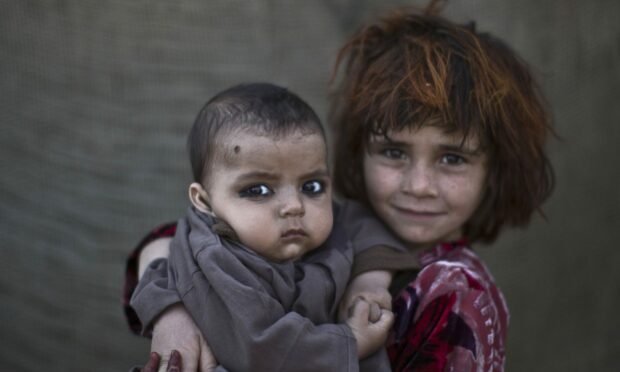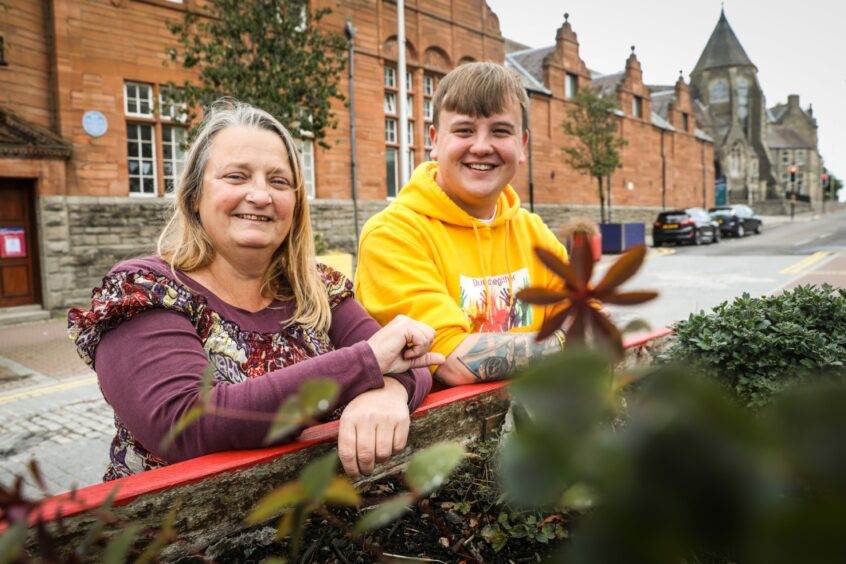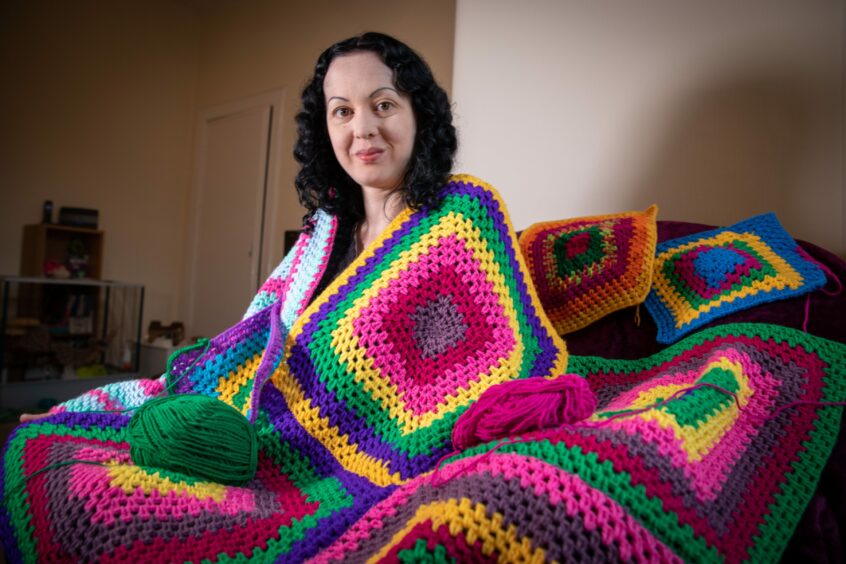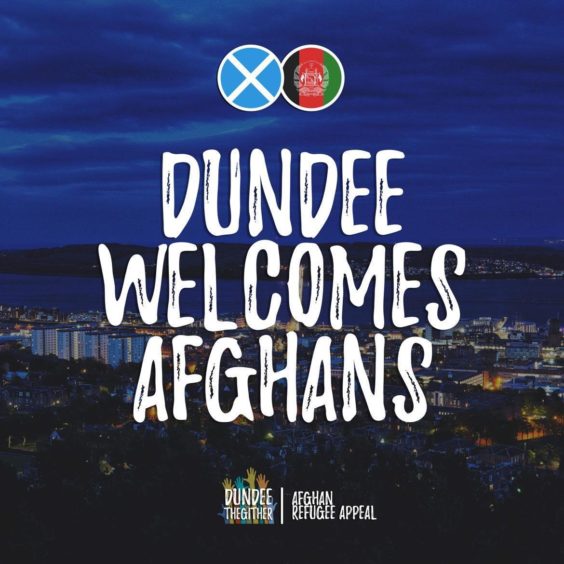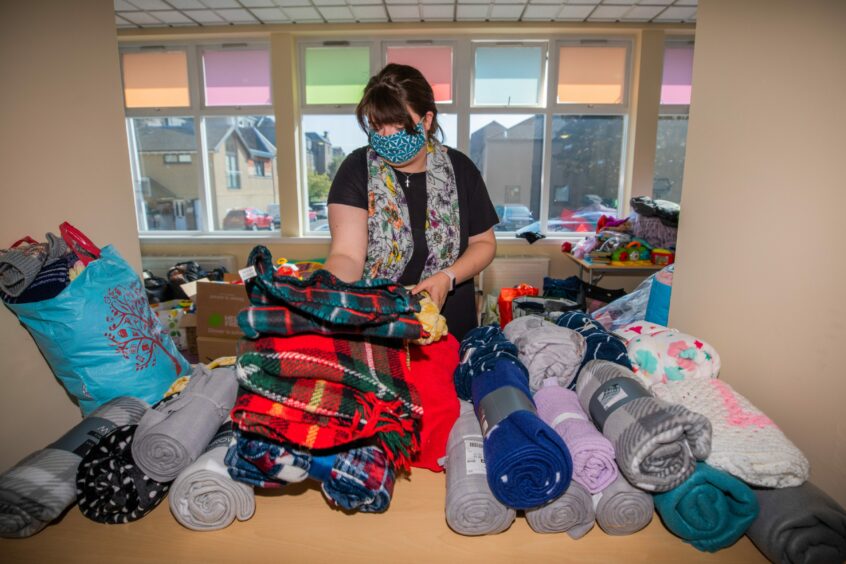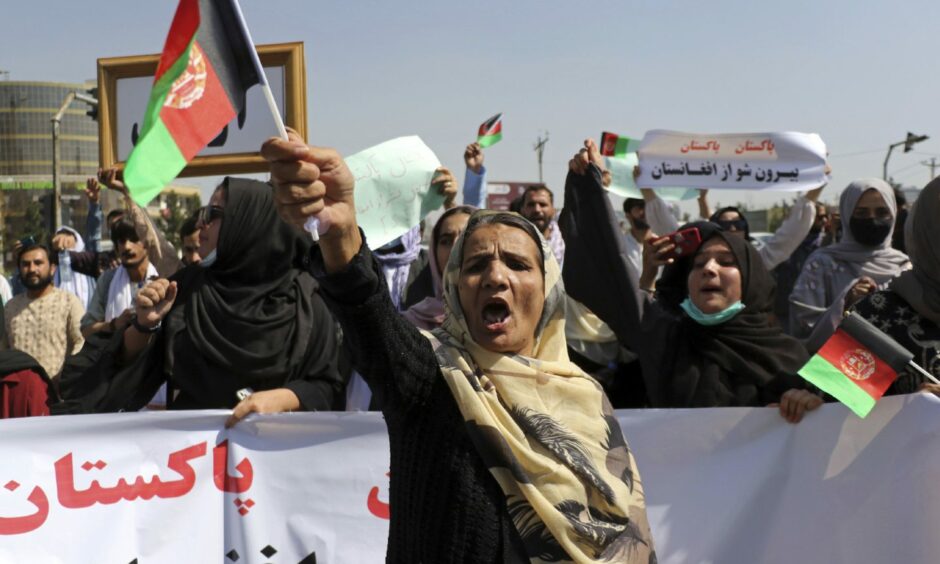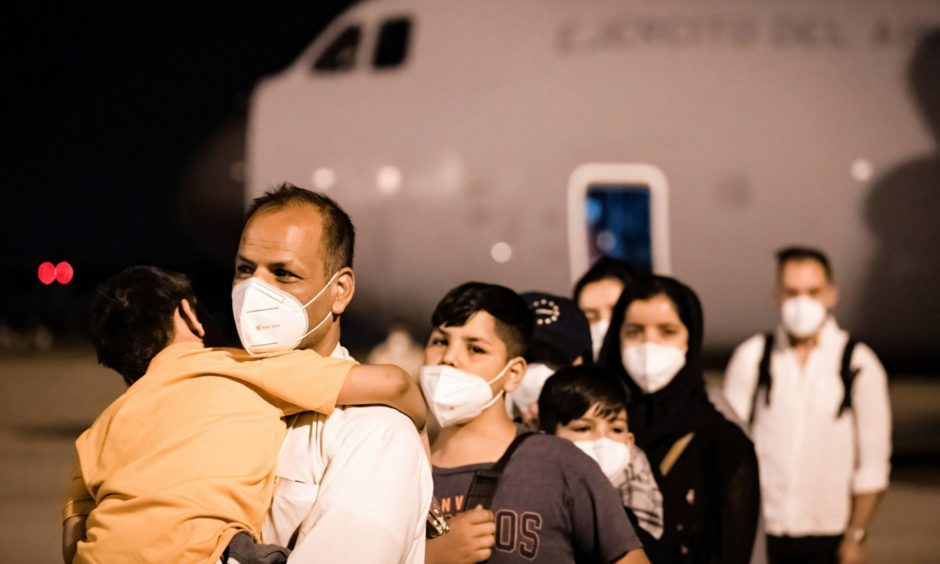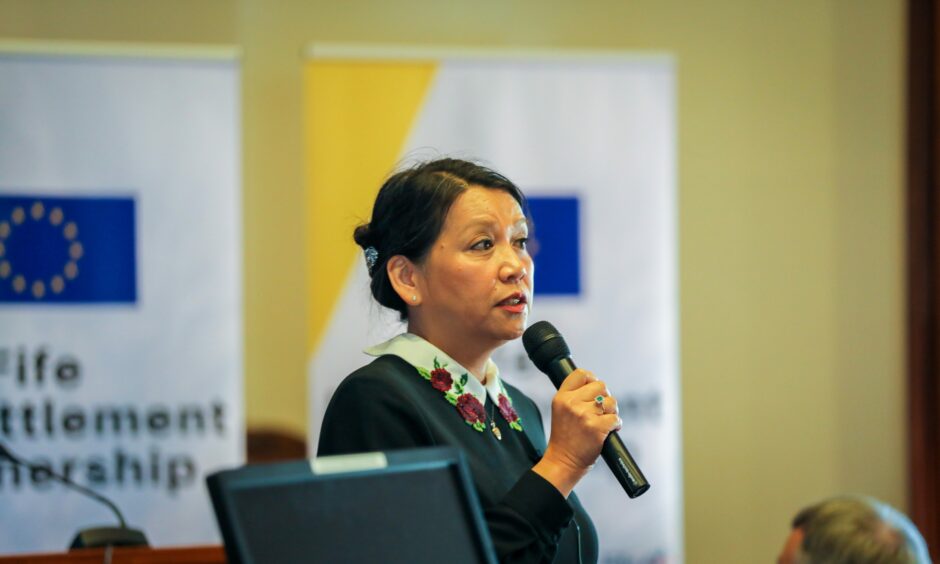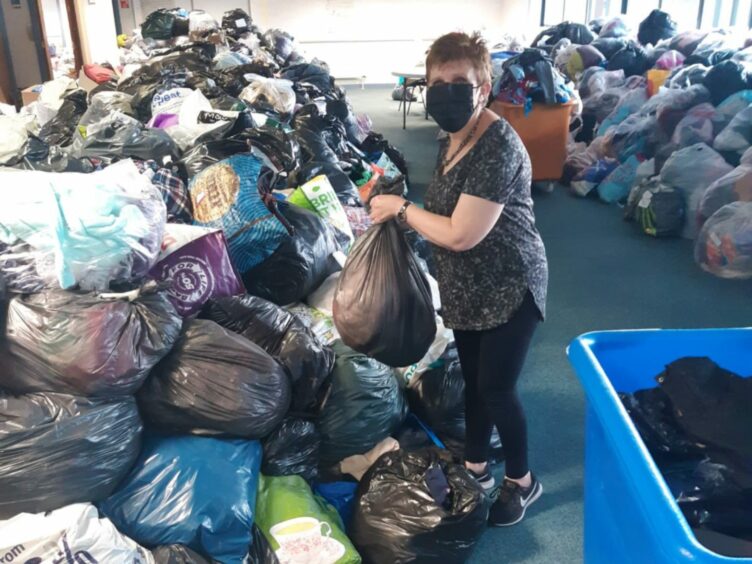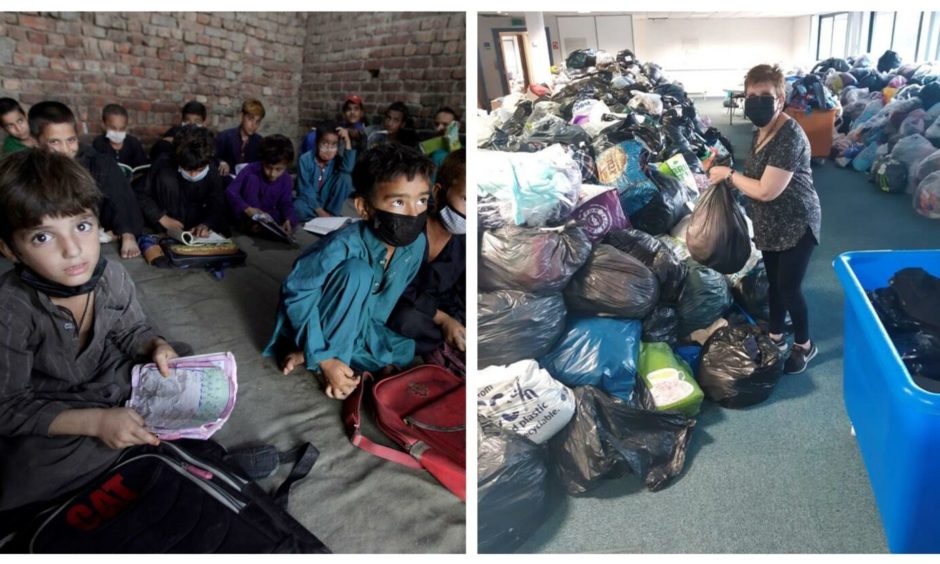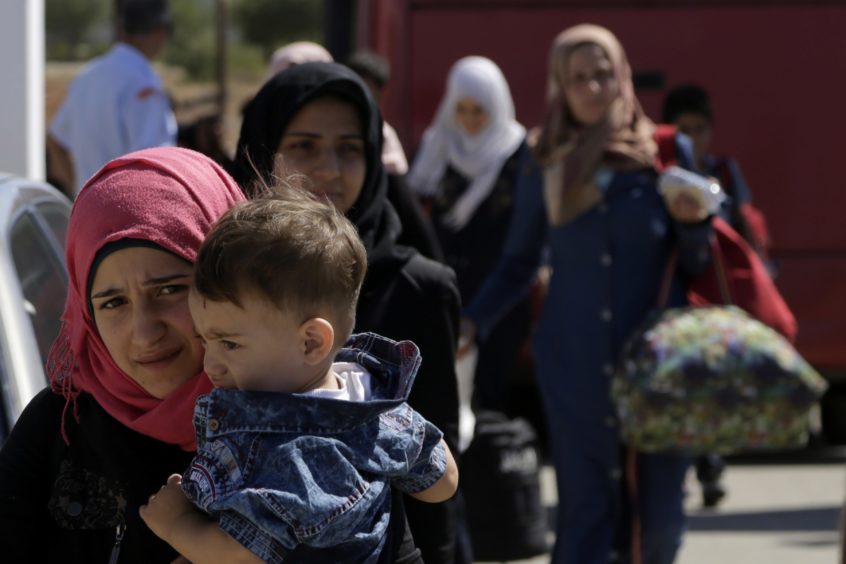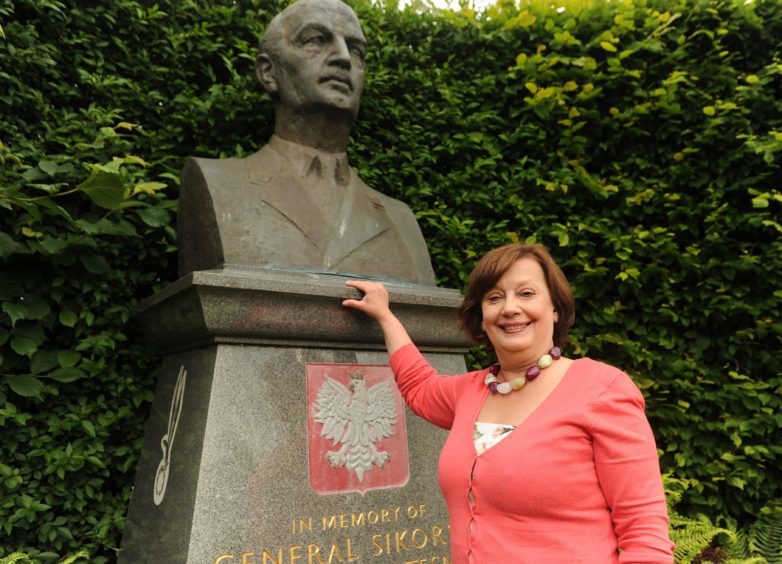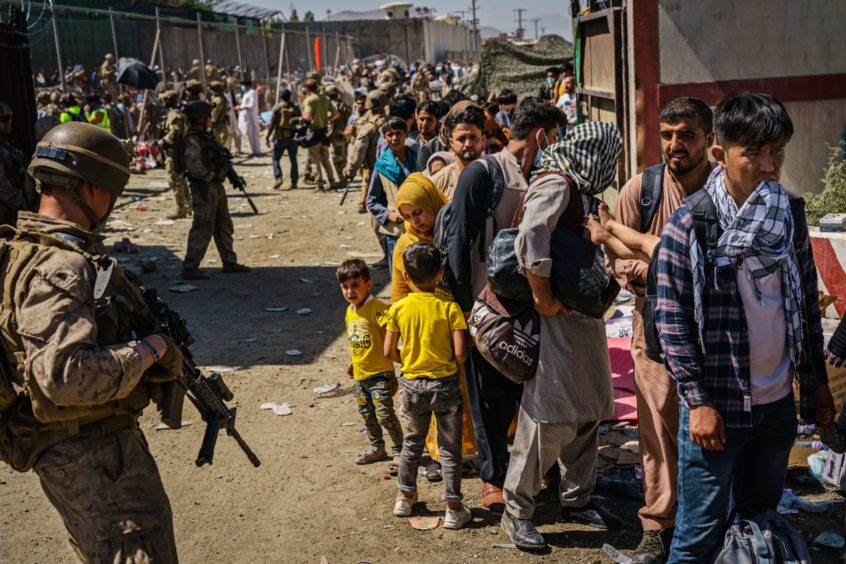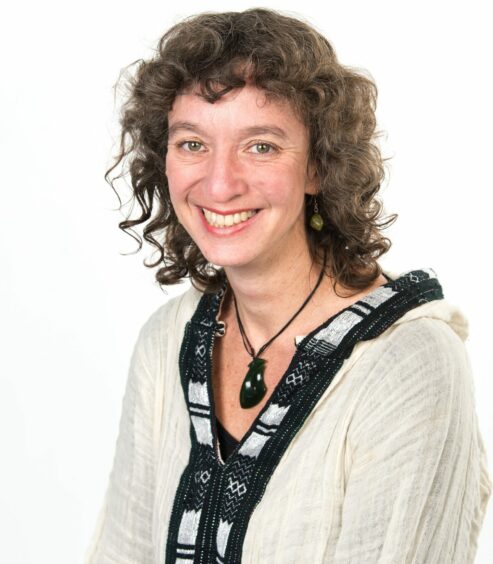As councils prepare to welcome refugees who have fled the Taliban take-over of Afghanistan, Michael Alexander asks Tayside and Fife charity volunteers if they think governments are doing enough.
It was the photograph that led to a dramatic upturn in international concern over the refugee crisis.
In September 2015, the image of Syrian toddler Alan Kurdi lying lifeless on a Turkish beach, came to symbolise the human tragedy of the thousands of migrants who drowned crossing the Mediterranean that year.
Six years on, and the recent scenes from Kabul of Afghans trying to flee the Taliban regime has led to a renewed wave of public donations to charities.
First Minister Nicola Sturgeon has written to Prime Minister Boris Johnson urging the UK Government to resettle more than the 20,000 Afghan refugees it plans to bring in over the next five years, including 5,000 this year.
Councils including Dundee, Fife, Angus and Perth & Kinross – which participated in the Syrian Resettlement Programme – have also expressed their commitment to support Afghan refugees.
What is happening in Afghanistan is a tragedy. The Afghan people have been shamefully abandoned and the implications, for women and girls especially, are horrifying. There are no easy answers but the world can’t just turn away and leave them to their fate https://t.co/TdmSFOeFD7
— Nicola Sturgeon (@NicolaSturgeon) August 13, 2021
However, at a time when the Home Office continues looking at tougher ways of curbing migrants from crossing the English Channel, is there a danger that when the plight of refugees drifts away from the media, that divided public sympathy drifts with it?
Dundee Thegither
Leading charity Dundee Thegither was originally set up as a multi-cultural response to a potential visit to the city by Nigel Farage and the Brexit Party in 2019.
The award-winning charity was resurrected during the Covid-19 pandemic when a group of those behind it realised the notion of its existence fitted with the concept of people needing help and support.
Now Dundee Thegither is working hard to ensure Afghan refugee families are warmly welcomed to the city.
It recently launched an appeal for donations of essentials including toiletries, bedding and towels and is keen to ensure that Afghan families feel welcome and supported.
Birkhill-based Siobhan Tolland, who co-founded the group with Lee Mills, says the Dundee response to the Afghan refugee appeal has been “overwhelmingly positive” with many groups involved.
However, she has been particularly moved by some of the “incredibly thoughtful” and “beautiful responses” from individuals.
“We’ve had women knitting wee woolly hats, we had a woman crocheting blankets specifically for the Afghan families coming,” says Siobhan, who works by day as a disability advisor at Dundee University, and has a PhD on the life of Dundee labour movement activist Mary Brooksbank.
“But there’s also been an interesting element, especially when we first put out the appeal.
“People really wanted to help I think in part because we’ve all been through so much in the last 18 months.
“Covid has maybe just clarified that a lot more – that we’ve all struggled, and some more than others.
“What I’ve sensed is that there was an immediate recognition of what the Afghan people were experiencing.
“Some of the emails we’ve received were like ‘I know what it’s like to have no control over my life’ or ‘I know what it’s like to suddenly lose my home’.
“There was that kind of sense of empathy I think with the situation that the Afghan people were in.”
Inundated
Siobhan laughs, however, that the charity was “so naïve” when it came to predicting the volume of donations.
“We bought these bins and put them in Lochee Library, The Crescent in Whitfield and the Selkie in the town,” she says.
“Literally in a day we thought ‘these are way too small’!
“Lochee literally phoned me up the next day and said ‘oh my God, we have been literally inundated!’
“Then The Crescent in Whitfield – we went in to get stuff – they literally had it choc a block in a spare room.
“Some people were even going out and buying stuff. We got quite a few emails – ‘what do you think you need? I’m nipping to the shops today!’
“We got brand new quilts, brand new covers, towels, toiletries – because they knew that’s what people needed. It’s been wonderful.”
Are politicians doing enough?
When it comes to politicians, Siobhan doesn’t think anyone can ever do enough.
However, in Scotland, she thinks there’s a culture and history that’s “much more welcoming” than is shown in some other parts of the UK.
At Scottish Parliament level, she thinks there’s a “wider and more concensus-based focus on what helps the community” and this is reflected across local authorities.
Given Dundee’s own long history of welcoming migrants, she thinks the city is in a particularly strong position to welcome refugees – particularly as Afghanistan is itself a country of diverse cultural backgrounds.
Last month Dundee City Council revealed plans to support Afghan refugees.
A similar commitment has been given by Fife Council where the public have also been incredibly generous when it comes to making donations for Afghan refugees.
‘Heartening’ Fife response
Workers and volunteers at Fife Voluntary Action have been collecting and sorting over 11,000 bags of clothes, toiletries, over £14,000 cash donations and other practical household goods to ensure a warm and practical welcome.
Nina Munday, chief executive of Fife Centre for Equalities, said they were “completely heartened” by the planning between partners prior to the arrival of Afghan refugees.
“The donations from the public illustrates how much we empathise with people who have fled their home countries empty-handed,” she says.
“Religious establishments, such as mosques and churches, are working together to enable the families to have appropriate items for them to practice their faith.”
Kirkcaldy Labour councillor Judy Hamilton, community and housing services convener for Fife Council, says the generosity of locals has been overwhelming.
“Fife has a strong and proud record of welcoming and resettling evacuees and refugees from other countries,” she says.
“In 2014/15, we took part in the Afghan Relocation scheme and welcomed people and families, who had been employed by the UK forces, as interpreters – or other civilian personnel.
“In 2016, we participated in the Syrian Vulnerable Persons Resettlement Scheme that has recently been changed to the “Vulnerable Persons Resettlement scheme” and we are committed to play our part as that continues.
“As the Afghan crisis unfolded this year, we once again stood ready to play our part – and we agreed that Fife would accept 10 families in the current schemes.
“However, the scale and pace of the fall of Kabul has meant that we will be ready to play our part should more families be relocated to Fife.”
‘Soul-less’ plight of refugees
Fife man Chris Mitchell says there’s no doubt the donations being managed by Fife Voluntary Action reflect how the plight of refugees stirs the “deep well of humanity in our communities”.
However, the grandfather-of-two from Kinghorn, who gained first-hand experience of the “soul-less” plight being experienced by many Syrian refugees after volunteering with local relief organisations in the Greek islands in 2016/17, does not feel this is being reflected in the UK government response.
“As I saw in the Greek refugee camps four years ago, alongside those fleeing the horrors of Syria, were a steady trickle of parents with children from Afghanistan, fleeing a much longer conflict stoked by the west,” says the former Fife Council officer, who has more than 25 years of experience as an RNLI and Coastguard volunteer in Kinghorn.
“I recall one wee girl clinging to her dad as they boarded a van for their onward journey.
“In her eyes, where there should have been the curiosity, laughter and playfulness of kids on a school outing, instead were fear, trauma, and trepidation for the next step.
“There will be such children now on the long road from Afghanistan to their parents’ hopes of a safety and a tolerable future.
“Just as in 2016 when David Cameron shamefully pronounced the opt out he had negotiated from European efforts to shelter refugees fleeing Syria, so this government now selectively picks through just those engaged by the British intervention in Afghanistan who now seek asylum and shelter.
“The door is barely ajar but inside are many people across the UK who would open their arms to offer refuge and practical help, just like they are doing now in Fife.”
‘Lack of trust’
Polish woman Violeta Ilendo, 62, of Cupar, is a former member of the Fife Migrants Forum.
The retired Fife Council manager, who is a Citizens Rights Project Board Member, has been helping EU citizens with their applications for settled status following Brexit.
The former Polish Solidarity activist, who campaigned against Poland’s Communist regime whilst studying literature at Warsaw University in the late 1970s, was granted exceptional leave to remain in the UK after Martial Law was declared in her homeland whilst she was on a study trip to London in 1981.
While she has had very little to do with Afghan refugees, and is full of praise for the “amazing community spirit” to help them, she remains concerned that “trust has been broken” between migrant communities and the Westminster government.
“The community spirit is amazing in this country,” she says. “But it’s just that the government thinking is not always joined up.
“People are escaping horrible situations like Afghanistan. The local communities gather together. They bring the warmth, the passion, the welcome.
“But when it comes to UK government policy, there is no consistency and sometimes no humanity when it comes to migration. It’s as if the government is listening but they are not hearing – they move from one policy to another. There’s no long term policy.
“That’s why there’s a need for organisations to keep human rights on top of the agenda.
“Because even when the media does a good job reporting on events like Afghanistan, the agenda moves on – but that doesn’t mean the issues have gone away.”
‘Exemplar’ Scottish refugee strategy
Alison Phipps is UNESCO chairperson for Refugee Integration through Languages and the Arts and Professor of Languages and Intercultural Studies at Glasgow University where she co-convenes Glasgow Refugee Asylum and Migration Network.
When it comes to Scotland’s relationship with refugees, she often use the analogy of it “being a bit like the ebb and flow of the tide”.
“There are times in our history when we are a ‘sending’ nation and there are times in our history when we are ‘receiving’ nation,” she says.
“At the moment, if you look at our net population loss, we’re largely still losing population.”
Professor Phipps says Scotland needs a migration policy that works in terms of jobs and skills. But more than that, it needs to reflect communities’ desire to care for one another.
“Of course with migration policies there are issues around skill shortages that we look at,” she says.
“But when you are talking about refugees, it’s actually really important that we remember that you do not have to contribute anything as a refugee. You just have a human right to seek protection.”
Distinction
Professor Phipps believes it’s important “to make a distinction between the actions of the UK government and the actions of the Scottish government”.
Whilst decisions about who can migrate and emigrate and visas are taken by Westminster, care of migrants is largely devolved to Scotland.
That’s where the New Scots refugee integration strategy comes in – a vision for a welcoming Scotland where refugees and asylum seekers are able to rebuild their lives from the day they arrive.
A partnership between the Scottish Refugee Council, local authorities, the Scottish Government and many civil society organisations, Scotland’s policy has been held up as an “international exemplar” of what can be done and Scotland should be “really proud of it”, she says.
By contrast, she says, it’s been claimed that changes to UK Government immigration rules could be in breach of the UN Refugee Convention to which Britain has been a signatory for 70 years.
The Royal Society of Edinburgh, for example, recently responded to the UK government saying it “does not consider it fair or compatible with our treaty obligations to introduce a new asylum system which effectively discriminates against asylum seekers based on the route they have travelled”.
Last week UK justice secretary Dominic Raab said he would be “opened-minded” about allowing asylum seekers to work to help tackle the UK’s labour shortage.
